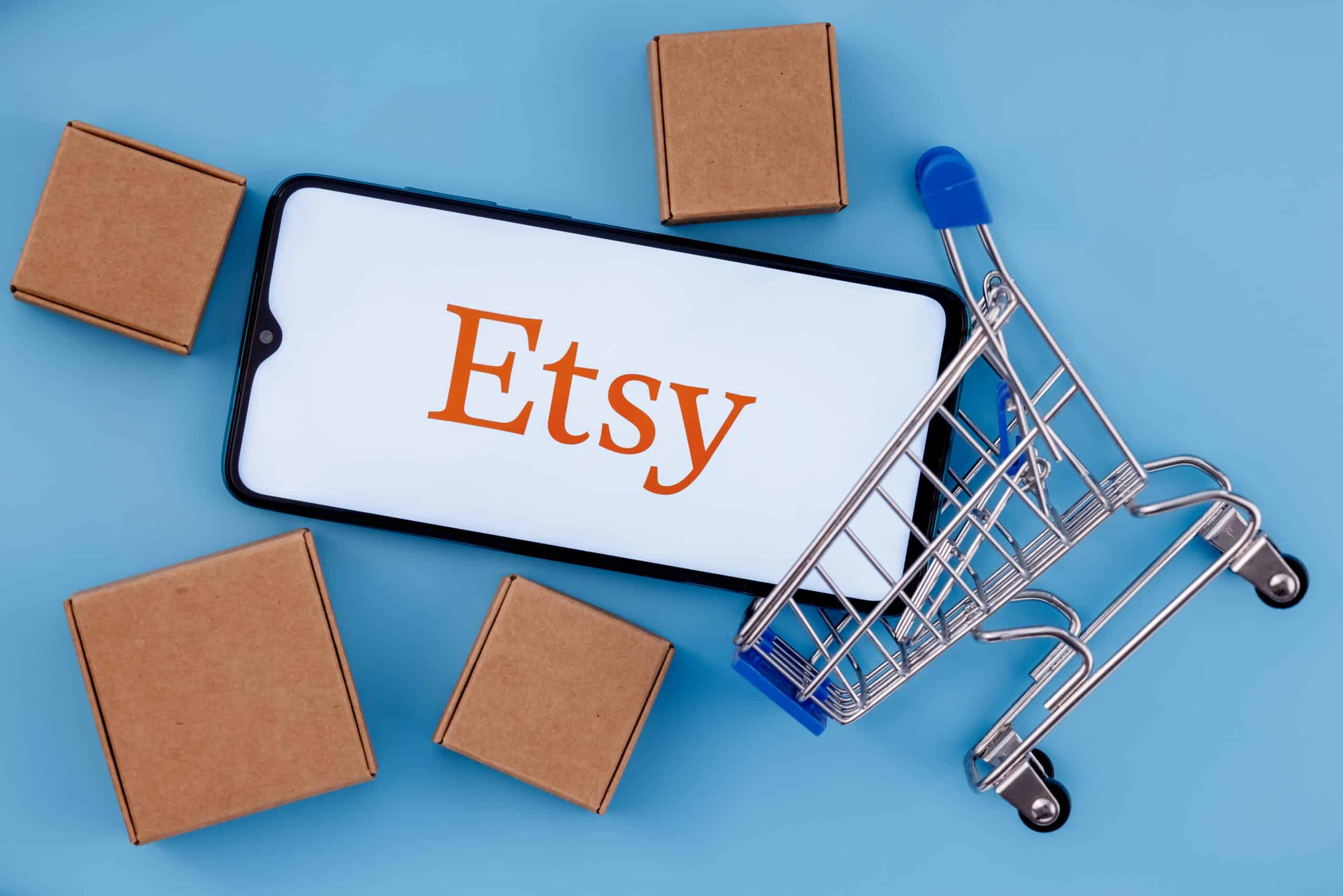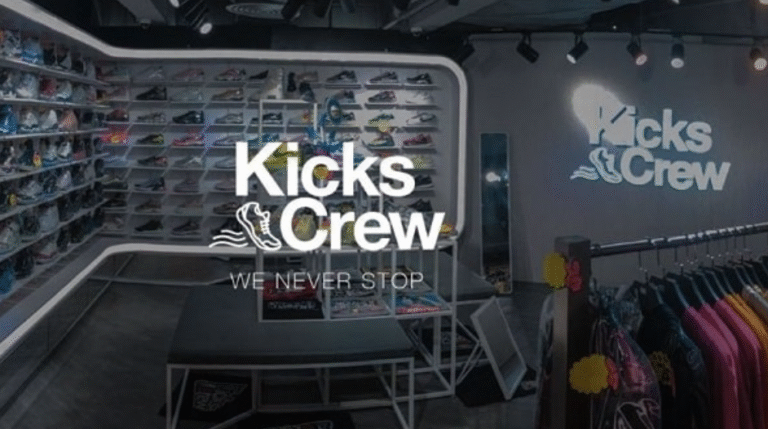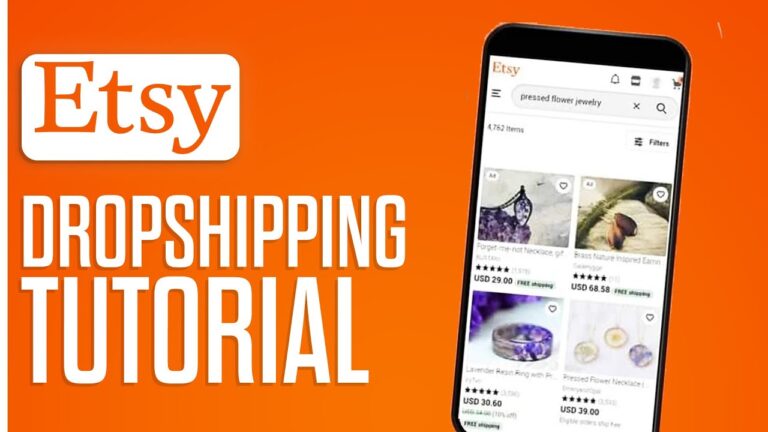What is Etsy? Is Etsy Legit?
In today’s digital world, online marketplaces have become the go-to solution for shopping, selling, and discovering unique products without ever stepping outside.
From global giants like Amazon to specialized platforms like Etsy, the eCommerce landscape is booming. People are shifting toward platforms that cater not just to convenience, but also to individuality, creativity, and small-business support.
Online marketplaces offer a space where consumers can browse, compare, and buy from a range of sellers—all in one place. For creative entrepreneurs, they’ve opened up new doors to reach global customers without investing in a brick-and-mortar store or building an entire website from scratch.
This is where Etsy shines.
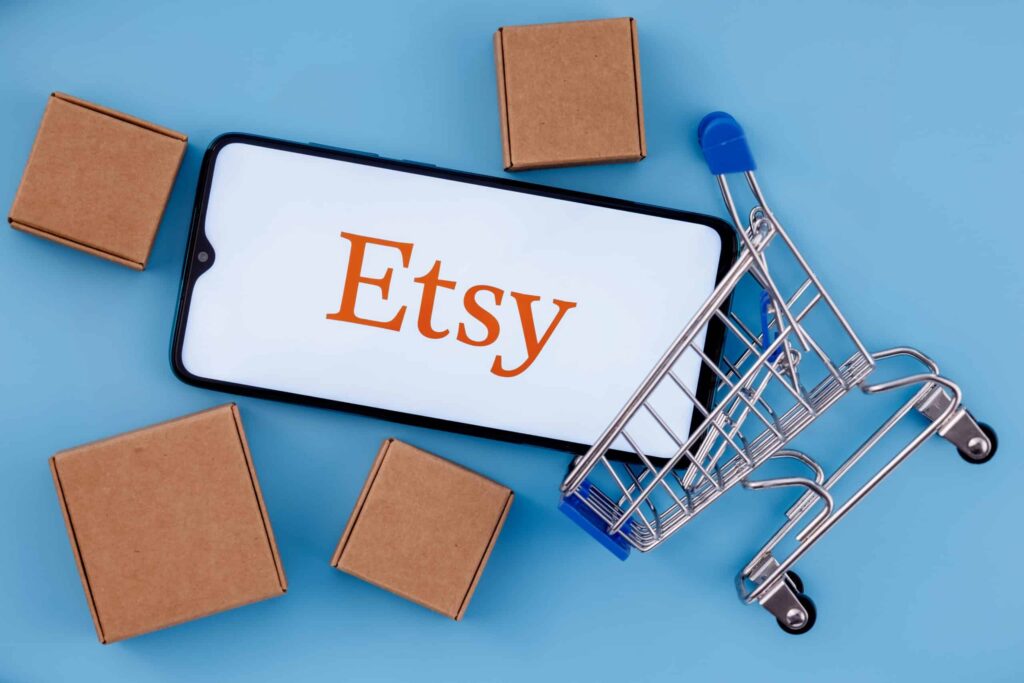
Etsy has carved out a niche that no other platform has quite replicated. It’s not about mass production or overnight shipping—it’s about handmade, meaningful items that tell a story.
In an era where so much feels automated and generic, Etsy brings back the personal touch. And that’s exactly why it’s become such a favorite among both buyers and sellers.
Table of Contents
Brief Overview of Etsy
So, what is Etsy?
Etsy is an online marketplace that connects creative entrepreneurs with customers who value originality. It specializes in handmade goods, vintage items, and craft supplies. Think of it like a digital craft fair with global reach—offering everything from hand-poured candles to personalized wedding gifts, to rare vintage decor.
Founded in 2005, Etsy has grown from a humble startup into a multi-billion-dollar company with over 90 million active buyers and 7.5 million sellers worldwide. The platform offers a highly curated shopping experience, with an emphasis on quality over quantity.
Unlike Amazon or eBay, where product listings can feel repetitive and mass-produced, Etsy feels like a treasure hunt. Each shop has its own personality. Each item is part of someone’s creative passion. And that’s what makes Etsy so engaging.
But one question many people still ask is: “Is Etsy legit?” The answer is a resounding yes—and we’ll explain exactly why in the sections ahead.
History and Founding of Etsy

When and Why Was Etsy Created?
Etsy was launched in June 2005 by a small group of friends: Rob Kalin, Haim Schoppik, and Chris Maguire, in Brooklyn, New York. The idea came from Kalin’s frustration as a struggling furniture maker. He couldn’t find an online platform that celebrated and supported handmade goods.
At the time, options for selling handmade items were limited. Sites like eBay were focused more on used goods and auctions, while Amazon was becoming a mega-retailer. Artists, crafters, and vintage collectors had no dedicated space to showcase their work to an audience that cared about creativity.
Kalin and his co-founders saw a gap and filled it beautifully. Etsy was built from the ground up to serve as a creative marketplace where artisans and buyers could come together in a meaningful, authentic way.
The mission? To “keep commerce human.” That guiding principle still influences Etsy’s culture and functionality to this day.
How Etsy Grew Over the Years
Etsy’s growth is nothing short of impressive. What started as a small operation in an apartment quickly ballooned into a global platform. Here’s a snapshot of how Etsy evolved over the years:
- 2005–2007: Etsy gained traction among indie artists and crafters through word of mouth and grassroots marketing.
- 2008: The platform reached 1 million sales and started gaining media attention for supporting small businesses.
- 2012: Etsy introduced mobile apps, making it easier for users to buy and sell on the go.
- 2015: Etsy went public with an IPO, raising $237 million and listing on the NASDAQ.
- 2020: During the COVID-19 pandemic, Etsy exploded in popularity as people turned to it for masks, home decor, and gifts—recording $10 billion in gross merchandise sales that year alone.
- Today: Etsy continues to innovate with new features, including a purchase protection program, international expansion, and advanced analytics tools for sellers.
What makes Etsy’s story so compelling is that it has stayed true to its core values. It’s still a place where artists and small businesses can thrive—without being overshadowed by corporate giants.
How Etsy Works
For Buyers – Discovering Unique Products
Shopping on Etsy is an experience like no other. Unlike scrolling endlessly through generic products on Amazon, Etsy invites you into a world of individuality. When you type “handmade journal” or “custom necklace” into the search bar, you’re not just seeing a product—you’re seeing someone’s creative vision.
Here’s what makes Etsy special for buyers:
- Search Personalization: Etsy uses algorithms to show you products that match your style, past purchases, and browsing behavior.
- Direct Seller Interaction: You can message shop owners directly with questions, customization requests, or shipping concerns.
- Variety and Depth: With over 100 million items listed, Etsy offers something for every taste—from boho home decor to gothic wedding invitations.
- Safe Payments: All transactions are encrypted and handled securely through Etsy Payments.
Shoppers also love the “favoriting” feature, which allows them to bookmark items and shops they like for future reference. And with curated editor picks, trending categories, and seasonal collections, there’s always something new to discover.
Etsy doesn’t just sell products—it helps buyers find items with soul, purpose, and personality.
For Sellers – Starting an Etsy Shop
Thinking of selling your handmade jewelry, digital art prints, or vintage camera collection? Etsy makes it surprisingly easy to start your own shop.
Here’s how it works:
- Create an Account: Signing up is free and only takes a few minutes.
- Set Up Your Shop: Choose your shop name, upload a profile picture, and write a short bio.
- List Your Products: Upload photos, write detailed descriptions, and set pricing. Each listing costs $0.20 and lasts four months.
- Manage Orders: Etsy provides a seller dashboard where you can track orders, communicate with customers, and handle shipping.
- Promote and Grow: Use built-in SEO tools, run discounts, and even advertise through Etsy Ads.
Sellers also get access to detailed analytics, letting them see which products perform best, where traffic comes from, and how to optimize listings.
Etsy is especially friendly to beginners. No need to worry about coding, web hosting, or eCommerce software. You get a ready-made platform with millions of buyers already browsing for exactly what you’re selling.
And that’s a massive win if you’re a creative trying to turn your passion into profit.
Types of Products Sold on Etsy
Handmade Goods
Handmade goods are the lifeblood of Etsy. These are items that are crafted, assembled, or altered by the seller—not mass-manufactured products. This category includes:
- Jewelry: Personalized name necklaces, gemstone rings, clay earrings.
- Home Decor: Macramé wall hangings, handmade candles, wood signs.
- Art: Original paintings, digital prints, hand-drawn portraits.
- Clothing: Embroidered T-shirts, knitted scarves, custom baby onesies.
What makes handmade products on Etsy stand out is the customization factor. Buyers can often request colors, sizes, engravings, and even tailor-made designs. It’s the kind of shopping experience that just doesn’t exist on most mainstream websites.
Vintage Items
Etsy defines vintage as items that are at least 20 years old. This category includes:
- Fashion: Vintage Levi’s jeans, retro handbags, 90s band tees.
- Home Goods: Antique clocks, mid-century furniture, vintage glassware.
- Collectibles: Old magazines, vintage toys, and rare books.
Buying vintage on Etsy is like walking through a digital flea market—except everything is searchable, categorized, and backed by customer reviews. It’s ideal for collectors, decorators, or anyone who appreciates nostalgia.
Craft Supplies and Tools
Lastly, Etsy is a paradise for DIY enthusiasts and makers. The platform is packed with craft supplies such as:
- Beads and Jewelry Findings
- Sewing Patterns and Fabric
- Printable Stickers and Planners
- Art Supplies
- Knitting and Crochet Kits
Many crafters source their materials from Etsy because the selection is more unique and diverse than what you’ll find at chain stores. Plus, you’re often buying from other small businesses, which adds another layer of value.
Is Etsy Legit and Safe?
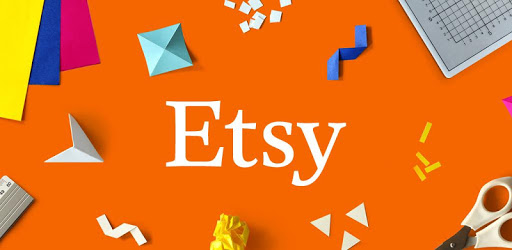
Security Features Etsy Offers
Etsy has grown into one of the most trusted online marketplaces, largely due to its well-established security protocols. If you’ve ever wondered, “Is Etsy legit?” the platform’s focus on secure transactions provides a reassuring answer.
Etsy uses SSL encryption across its platform. This means that every transaction you make, whether buying or selling, is encrypted and protected from malicious activity. The checkout process is also secured, allowing customers to pay via trusted platforms like PayPal, Apple Pay, Google Pay, or credit/debit cards.
Etsy also employs anti-fraud technology to detect suspicious activity and prevent unauthorized account access. Every seller and buyer is subject to identity verification processes. When sellers are flagged for any questionable activity, Etsy acts quickly—either suspending their accounts or conducting further investigation.
For an additional layer of buyer protection, Etsy offers Etsy Purchase Protection. This policy ensures customers receive the item they ordered or they’ll get a full refund. It applies to non-delivered items or goods that don’t match the description—boosting buyer confidence.
Ultimately, Etsy’s combination of digital security tools, identity checks, and financial protections places it among the safest eCommerce platforms, especially for handmade and vintage items.
How Etsy Protects Buyers and Sellers
One of Etsy’s major strengths is how it supports both ends of the marketplace. Whether you’re a buyer or seller, Etsy has put frameworks in place to ensure a fair, safe, and user-friendly experience.
Buyer Protections Include:
- Etsy Purchase Protection: Buyers are eligible for refunds if their items are not delivered, damaged, or not as described.
- Secure Payment Gateways: Payments are processed securely and immediately.
- Support Team Access: Etsy has a 24/7 support center ready to mediate disputes between buyers and sellers.
- Review and Rating System: Customers can leave reviews, helping other buyers gauge seller credibility.
Seller Protections Include:
- Fraud Detection: Etsy uses automated systems to spot suspicious buyer activity.
- Case Mediation Services: If a dispute arises, Etsy steps in to help resolve the issue fairly.
- Intellectual Property Protection: Etsy enables sellers to report IP infringements, protecting original creators.
These systems build trust within the Etsy community. Sellers feel supported and respected, while buyers enjoy a transparent shopping experience—something that not every marketplace can guarantee.
Trust Factors – Reviews, Ratings, and More
A major factor when evaluating “Is Etsy legit?” comes down to transparency. Etsy’s review system is a cornerstone of that. Every buyer can leave a 1 to 5-star rating for items they’ve purchased, along with written feedback. These reviews are publicly visible and can’t be deleted or altered by sellers—ensuring authenticity.
What sets Etsy apart is the depth of its reviews. Buyers often share detailed experiences, including:
- Shipping speed
- Product quality
- Customer service interactions
- Packaging and presentation
Beyond reviews, Etsy profiles include:
- Number of sales completed
- Time active on Etsy
- Seller’s response rate and speed
- Policies on returns, shipping, and custom orders
These trust signals make it easier for buyers to make informed decisions. If a shop has thousands of positive reviews and swift shipping policies, shoppers are more likely to buy with confidence.
Additionally, Etsy’s “Star Seller” program highlights top-rated shops with consistent positive feedback, on-time shipping, and excellent communication. This badge acts as a symbol of reliability for users seeking dependable sellers.
Pros and Cons of Using Etsy
Benefits of Shopping on Etsy
There’s a reason over 90 million active buyers turn to Etsy—it delivers an experience that’s vastly different from big-box retailers. Here’s why shoppers love it:
1. Unique and Personalized Products:
From custom jewelry to handmade home décor, Etsy thrives on creativity. If you want something original and meaningful, Etsy is a goldmine.
2. Support for Small Businesses:
Every purchase you make typically supports a small business, artist, or craftsperson. This fosters a feel-good shopping experience.
3. Sustainable Shopping Options:
With many sellers using eco-friendly materials, Etsy supports sustainability. You’ll find recycled paper, biodegradable packaging, and upcycled products.
4. Strong Buyer Protection:
With features like the Purchase Protection program, buyers can shop with peace of mind.
5. International Shopping Made Easy:
Etsy connects global buyers with sellers from nearly every country, offering worldwide shipping on many items.
Drawbacks to Consider
As great as Etsy is, no platform is perfect. Here’s what to be mindful of:
1. Price Variability:
Since Etsy products are often handmade or one-of-a-kind, prices can be higher than mass-produced goods.
2. Inconsistent Quality:
While many sellers are exceptional, quality can vary. Always check reviews before making a purchase.
3. Shipping Delays:
Given that many products are made to order, shipping may take longer than Amazon or other major retailers.
4. Platform Fees for Sellers:
Sellers pay listing fees, transaction fees, and payment processing fees. These costs can add up, potentially impacting product pricing.
5. Counterfeit Products:
Despite Etsy’s efforts, some mass-produced or fake goods do slip through the cracks. Again, reviews and seller reputation are your best guides.
Understanding these pros and cons will help you navigate Etsy like a pro—making informed choices and avoiding common pitfalls.
Etsy for Sellers – Is It Worth It?
Costs Involved with Selling on Etsy
Thinking of opening your own Etsy shop? Let’s break down the costs:
| Fee Type | Amount |
|---|---|
| Listing Fee | $0.20 per item |
| Transaction Fee | 6.5% of the item’s sale price |
| Payment Processing Fee | Varies by country (e.g., 3% + $0.25 in US) |
| Offsite Ads Fee | 12%–15% of sales (only if they result in a sale) |
These fees might seem small, but they can add up—especially if you’re running a high-volume shop. That said, Etsy’s built-in audience and brand trust more than compensate for the platform costs, especially for new entrepreneurs with limited marketing budgets.
Advantages of Selling on Etsy
Despite the fees, Etsy offers a ton of advantages for sellers:
- Built-in Audience: Reach millions of buyers actively looking for handmade, vintage, or craft-related products.
- Marketing Tools: Etsy provides promo codes, discounts, ad campaigns, and analytics to help sellers grow.
- Customization: Sellers can set their own store policies, pricing, and branding elements.
- SEO Benefits: Etsy’s strong domain authority means that product listings often appear high in Google search results.
- Community and Support: Etsy offers forums, guides, and seller handbooks to help newcomers thrive.
Whether you’re a hobbyist or a full-time creator, Etsy provides a reliable, low-risk way to start selling online.
Etsy vs. Other Marketplaces
How Does Etsy Compare to Amazon, eBay, and Shopify?
When deciding where to sell or shop, it’s natural to compare Etsy with other major marketplaces like Amazon, eBay, and Shopify. So, how does Etsy stack up?
| Feature | Etsy | Amazon | eBay | Shopify |
|---|---|---|---|---|
| Niche Focus | Handmade, vintage, custom goods | Everything | Used & new goods | Build-your-own eCommerce website |
| Fees | Listing + transaction + processing | Subscription + referral + FBA | Listing + final value fees | Monthly plan + payment processing |
| Customization | Limited shop customization | Minimal customization | Moderate customization | Full control over branding |
| Audience | Creative/artisan-focused | Mass-market consumers | Bargain hunters & collectors | Depends on your own marketing |
| Setup Time | Very quick | Moderate | Quick | Takes time & effort |
Etsy is ideal for:
- Artists, crafters, and designers
- Vintage collectors
- DIY supply sellers
While Amazon and eBay are more suitable for high-volume, mass-produced products, Etsy allows creators to build a personal, story-driven brand. Shopify offers unmatched freedom but requires effort to build traffic and trust from scratch.
Etsy sits in the sweet spot: a curated community of creative buyers and sellers with relatively low startup costs and instant exposure.
Etsy’s Community and Culture
Beyond transactions and sales, Etsy fosters a global creative community. Many users feel like they’re part of something more than just a shopping platform. This community aspect is what truly sets Etsy apart.
Key elements of Etsy’s culture include:
- Creativity: Whether you’re browsing or selling, creativity is the heartbeat of Etsy. Handmade jewelry, watercolor portraits, and custom planners thrive here.
- Supportiveness: The Etsy forums are a goldmine of advice and support. Sellers share experiences, help troubleshoot issues, and offer encouragement.
- Sustainability: Many sellers practice eco-conscious crafting. Etsy itself offsets carbon emissions from shipping.
- Diversity: You’ll find sellers and shops from around the world, each bringing unique cultural and artistic influences.
Etsy also promotes social responsibility, supporting women-owned businesses, LGBTQ+ creators, and other underrepresented entrepreneurs. It’s a platform where individuality is not just accepted—it’s celebrated.
Real Customer Reviews and Testimonials
You don’t have to take just our word for it—let’s explore what real Etsy users are saying:
Buyers Say:
- “I bought a custom necklace for my anniversary. The seller was amazing, and it came wrapped beautifully. So much better than buying from a chain store!”
- “Shipping was delayed, but the seller updated me constantly. The item was worth the wait—truly one of a kind.”
Sellers Say:
- “Etsy helped me turn my weekend craft hobby into a full-time business. The exposure is unmatched.”
- “Fees can be annoying, but honestly, the audience Etsy provides is well worth it.”
Across forums and review sites, Etsy averages a positive rating of 4.5 out of 5, with thousands of testimonials praising its authenticity, ease of use, and helpful seller community.
External sites like Trustpilot and Sitejabber also confirm Etsy’s legitimacy with mostly favorable ratings—further confirming the answer to “Is Etsy legit?” is a strong YES.
Tips for Shopping Safely and Smartly on Etsy
Even on a trustworthy platform like Etsy, it’s good to shop smart. Here are some pro tips to help you avoid disappointment:
- Read Reviews Thoroughly: Look for reviews with photos and detailed feedback.
- Check Shop Policies: Understand return, refund, and customization options.
- Message the Seller: If you’re unsure, communicate with the seller to clarify details.
- Look for “Star Seller” Badge: This indicates top-rated customer service and reliable delivery.
- Avoid Suspiciously Low Prices: If something feels too good to be true, it probably is.
Also, keep an eye on processing times. Many items are made to order, which means they require a few extra days before shipping. The wait is often worth it for truly unique finds!
Final Thoughts – Should You Trust Etsy?
So, what is Etsy? Is Etsy legit? Absolutely.
Etsy is a legitimate, secure, and trusted platform where buyers and sellers connect over their shared love of creativity and uniqueness. Whether you’re looking for a one-of-a-kind gift or hoping to launch your own creative business, Etsy offers the tools, audience, and community to help you succeed.
It’s not without its drawbacks—some sellers may overprice, and shipping delays can happen—but the platform’s transparency and protections make it a top choice for mindful consumers and creative entrepreneurs alike.
If you value originality over convenience, human connection over algorithms, and small business over big corporations—Etsy is where you want to be.
FAQs About Etsy
1. Is Etsy safe to buy from?
Yes, Etsy is very safe thanks to encrypted payments, a reliable dispute system, and buyer protections like refunds for undelivered or misrepresented items.
2. Can I get scammed on Etsy?
While rare, scams can happen on any platform. Avoid too-good-to-be-true prices, check reviews, and communicate with sellers for peace of mind.
3. Does Etsy sell real handmade items?
Mostly yes. Etsy emphasizes handmade, vintage, and craft goods, although some mass-produced items can slip through. Reading product descriptions helps.
4. How long does Etsy shipping take?
It depends on the seller’s location and processing time. Many sellers note their expected ship-by date on the product page—be sure to check before ordering.
5. Is it worth selling on Etsy?
For most creators, yes! Etsy offers a built-in audience, marketing tools, and strong seller support, making it a great place to start your business.

